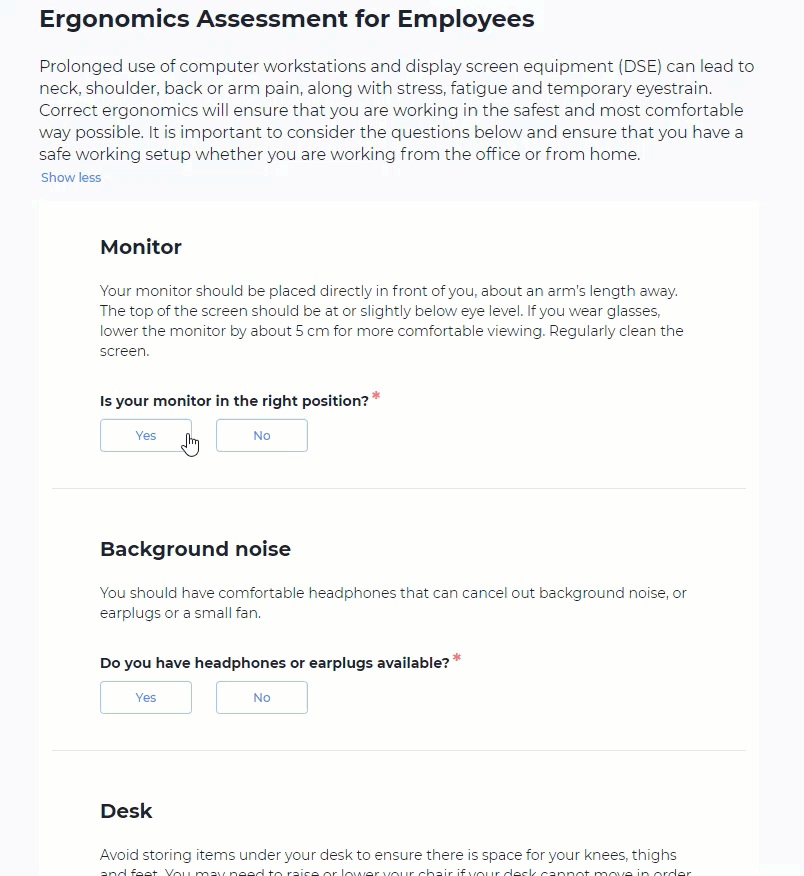
The DSE Regulations require that employers provide their staff with a suitable workstation, as well as taking steps to protect them from the risks of working with display screen equipment. Using DSE (i.e. PCs, laptops, tablets and smartphones) for extended periods or using them incorrectly can result in fatigue, eye strain, upper limb problems, back and neck problems, repetitive strain injury, stress, headaches and more.
Correct ergonomics will ensure that your staff are working in the safest and most comfortable way possible, whether they are working from home or from the office. VinciWorks’ ergonomics assessment takes employees who work at a desk through a short analysis of their workstation. Administrators can then get a full view of each employee’s workstation and any further action the company needs to take. The assessment can also be integrated into the interactive ergonomics assessment in our health and safety training.
What’s in the ergonomics assessment?
The assessment covers the following aspects of ergonomics and employee’s workstation:
Ergonomics assessment – features
- Integrate our health and safety training with the ergonomics assessment
- Add your own conditional logic to any multiple-choice questions in the form
What is Omnitrack?
Many organisations use email or spreadsheets to track information. These approaches lack structure and security. Collecting information over email invariably leads to inconsistent responses, missing information and lack of structure. Spreadsheets are limited by their two-dimensional nature, lack of automation tools and lack of security. Omnitrack is a centralised reporting and tracking tool. It allows anyone to identify a risk, complete staff surveys or carry out reporting requirements.
Omnitrack can either be implemented to manage a primary compliance discipline or can be scaled up to cover all your business’ compliance and reporting needs.








